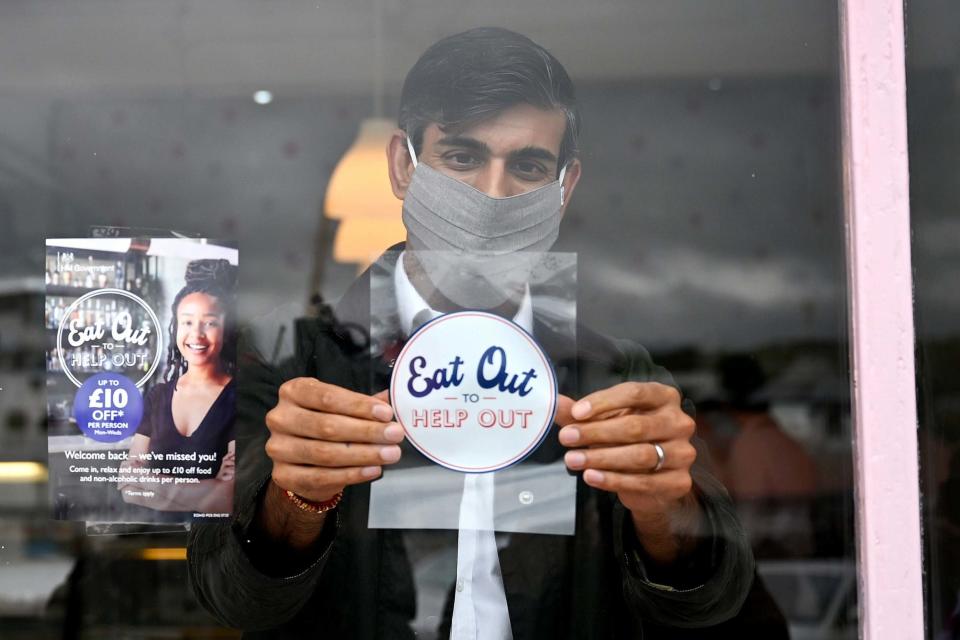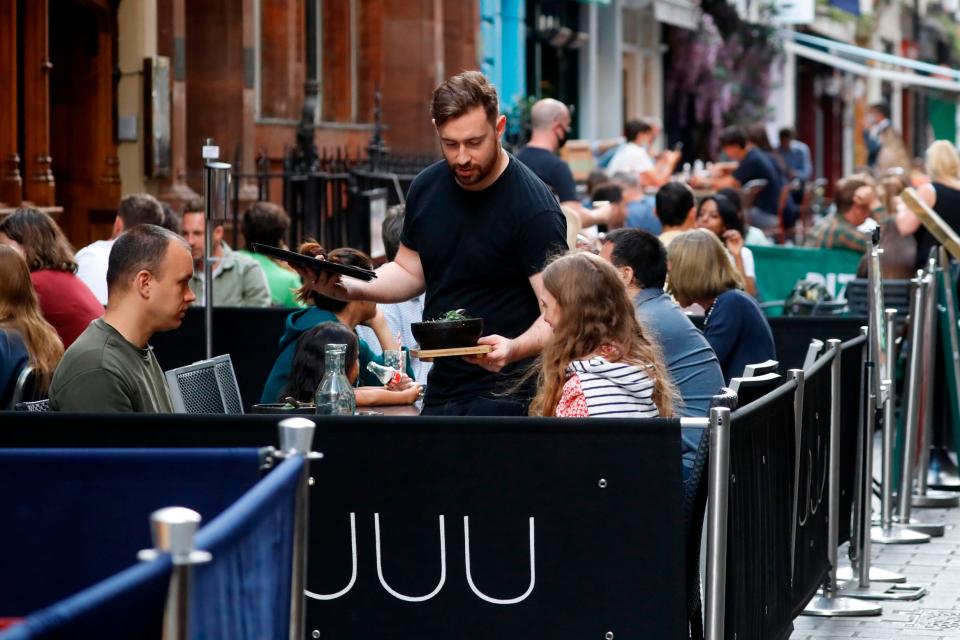What is a recession and when was the last time the UK economy was hit?

The UK is officially in the largest recession this country has ever known.
The economy plunged by 20% between April and June as the pandemic shuttered businesses and kept people locked up at home. GDP had fallen by 2.2% between January and March.
All areas of the economy have been hit, including the mammoth services sector.
The ONS said: "This is the largest quarterly contraction in the UK economy since ONS quarterly records began in 1955, and reflects the ongoing public health restrictions and forms of voluntary social distancing that have been put in place in response to the coronavirus pandemic."

What is a recession?
A recession is defined as two successive quarters of decline in GDP, which has not been seen in the UK since 2008 and 2009 during the financial crisis.
GDP is the common measurement of the size of a country’s economy. Measured in pounds it calculates the value of goods and services produced.
But the measurement most people focus on is the percentage change - the growth of the country's economy over a period of time, typically a quarter (three months) or a year. It's been used since the 1940s.
So a recession is when the GDP figures turn negative and the economy goes into decline.
If a recession carries on for a long time, or is particularly bad, it is known as a depression.
When was the last time the UK economy was hit?
Back in 2008, the UK recorded its worst recession in modern history. At the time the economy notched up five quarters of contraction, peaking at -2.2% in Q4 2008.
The deepest post-war recession saw huge institutions fold and others bailed out by the taxpayers in a global downturn sparked by the US subprime mortgage crisis.
In the UK, there was a run on lender Norther Rock while RBS, now NatWest, was among those bailed out – and still remains majority owned by the taxpayer.
It took 21 quarters to get back to pre-recession levels. The average across the other recessions was 13 quarters.

What happens next?
Recessions have serious repercussions on people's health and finances. The government will be worried as voters often punish government's at the polls when the economy shrinks.
Chancellor Rishi Sunak will have known the UK economy was heading into recession when the country went into lockdown. What he plans to do about it is another matter.
The Bank of England will keep its quantitative easing programme going, whereby it pumps money into the economy in order that banks can keep lending to businesses.
In a worst case scenario the UK could remain in a steep downturn for years to come, with mass unemployment and growing poverty.
Experts say that hopes of a swift V-shaped recovery looks dashed, with the Bank of England warning last week the UK could take longer to rebound than previously predicted.
The Bank forecast the economy would not jump back to pre-virus levels until the end of 2021.
Is there any hope?
The stats today show there was some bounceback in June, so the armageddon scenario might not ever take place.
Clothes stores, bookshops and other non-essential retailers opened their doors in England on 15 June, while construction work jumped after large declines in the previous two months.
Also it is important to remember the pain of a recession is typically not felt equally across society.
For instance, many UK homeowners who kept their jobs during the last recession did OK. Mortgage interest payments for many fell considerably, leaving them with more spending money.

Is the UK the sick man of the world?
The UK's slump is also one of the biggest among advanced economies.
The economy is more than a fifth smaller than it was at the end of last year. This fall is not as bad as the 22.7% decline in Spain but around twice the size of declines in Germany and the US.
The UK economy relies on the services sector, which means going to restaurants, pubs and sports events is vital if the country is to get back on its feet

 money
money 